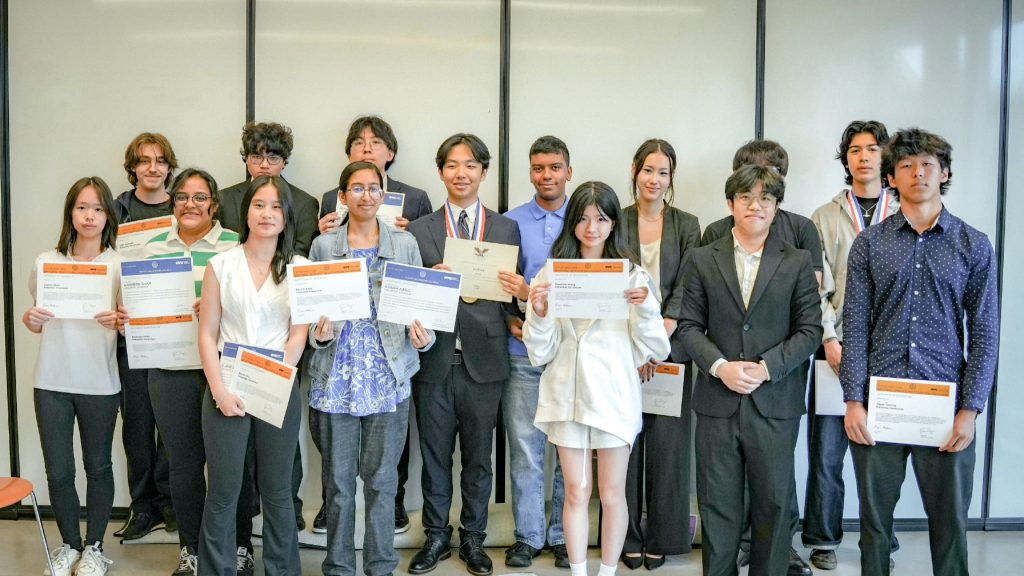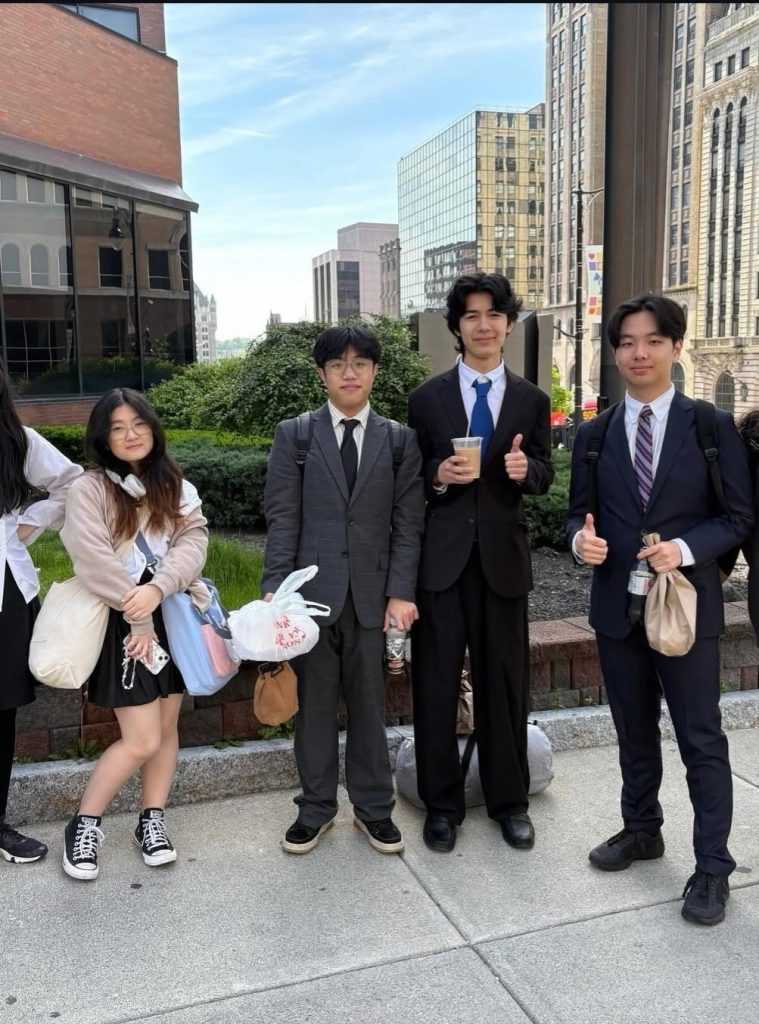
NYC Students to Rally at City Hall Against Statewide Device Ban
MOHAMED FARGHALY
mfarghaly@queensledger.com
A coalition of New York City students is planning a rally at City Hall during winter break to oppose the state’s newly implemented ban on Wi-Fi-enabled personal devices in public schools, arguing the policy widens inequities and hampers learning.
The demonstration, organized by Voluntas Juvenium, a student-led nonprofit known as “Will of the Youth,” follows a petition with more than 5,000 signatures and growing online support. The group’s campaign calls for what it describes as a “student-centered device policy” — one that balances classroom focus with flexibility for caregiving, communication, and academic needs.
Students from across the five boroughs have joined the effort, representing schools such as Brooklyn Technical High School, Bronx Science, Townsend Harris, Newtown, Francis Lewis, LaGuardia, and Eleanor Roosevelt. Many are helping to organize petition drives, coordinate outreach, and mobilize classmates to attend the upcoming City Hall protest. Voluntas Juvenium leaders say the cross-school coalition reflects a shared frustration with the ban’s impact on learning and communication, uniting students from specialized, arts, and neighborhood high schools under one cause.
“It’s our social responsibility to dismantle barriers and make sure overlooked voices are heard,” said Yu Hei Ip, a board member of Voluntas Juvenium and founder of the initiative. “We’re not asking for phones in class — we’re asking for policies that respect students’ lives, promote learning, and close equity gaps.”
The policy, which took effect statewide this fall, restricts students from bringing or using any Wi-Fi-enabled personal device, including phones, tablets, and laptops on school grounds. While the move was intended to curb classroom distractions, students say it has created logistical problems and academic setbacks.
“When they announced it on the first day of school, everyone just booed,” said Jin Park, founder of Voluntas Juvenium and student body president of The Brooklyn Latin School. “Our school doesn’t even have enough working laptops. Phones often fill that gap. For many students, they’re the only way to access Google Classroom, email teachers, or complete assignments.”
Park and Ip, both seniors, said enforcement has varied widely across schools. Some campuses use locking pouches to store phones, while others require students to surrender their devices to the main office. “At our school, the line to pick up phones at the end of the day is 20 minutes long,” Ip said.

Beyond inconvenience, students say the ban disproportionately impacts lower-income schools that lack up-to-date technology. “Private schools and wealthier communities still have access to resources,” Park said. “This just widens the digital divide.”
Students interviewed described difficulties completing college applications, studying during lunch periods, and communicating with family members — especially those who serve as caregivers or work after school.
“The time it takes just to log into a school laptop can eat up half the period,” Ip said. “Everything is online now. Taking away devices takes away the tools we need to learn.”
Teachers, too, have expressed reservations, according to Ip, who serves on his school’s student senate. “Most of the teachers I’ve spoken to didn’t want this policy,” he said. “They know students rely on devices to check grades, submit homework, and communicate through email.”
Voluntas Juvenium, which has more than 1,200 members across 17 countries, has organized hundreds of community service and advocacy projects. The group’s leaders say their experience working with local legislators, including Assemblymember Emily Gallagher and Senator Brad Hoylman-Sigal, has prepared them to navigate the political aspects of the campaign.
The upcoming City Hall protest is expected to draw at least 500 students, according to organizers, though they are aiming for double that number. The event will feature student speakers, press briefings, and outreach to elected officials.
“This is about setting a precedent,” Ip said. “We want to show that youth can organize, speak up, and influence change. Every major movement starts with students.”
The group has proposed a compromise policy allowing devices to remain “off and away” during instruction, but accessible during non-class periods such as lunch or passing time. Their framework also calls for restorative enforcement approaches and better funding for schools with outdated technology.
Park said the goal isn’t outright defiance, but reform. “The ideal outcome would be a full repeal,” he said. “But if that’s not possible right now, we want amendments that make this policy livable — and fair — for students.”
The rally date has not yet been finalized, but Voluntas Juvenium plans to coordinate with the NYPD and City Hall for permits. In the coming weeks, student organizers will continue recruiting high school representatives citywide to mobilize participation.
“When you dare to share your perspective,” Ip said, “you don’t just claim your own space, you give others permission to do the same. We’re building something that can outlast us.”


